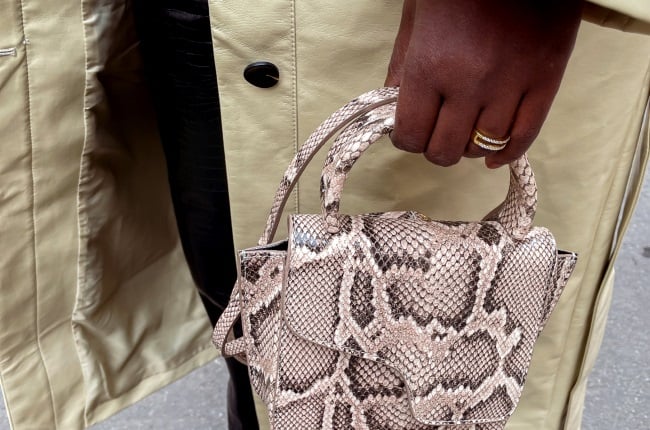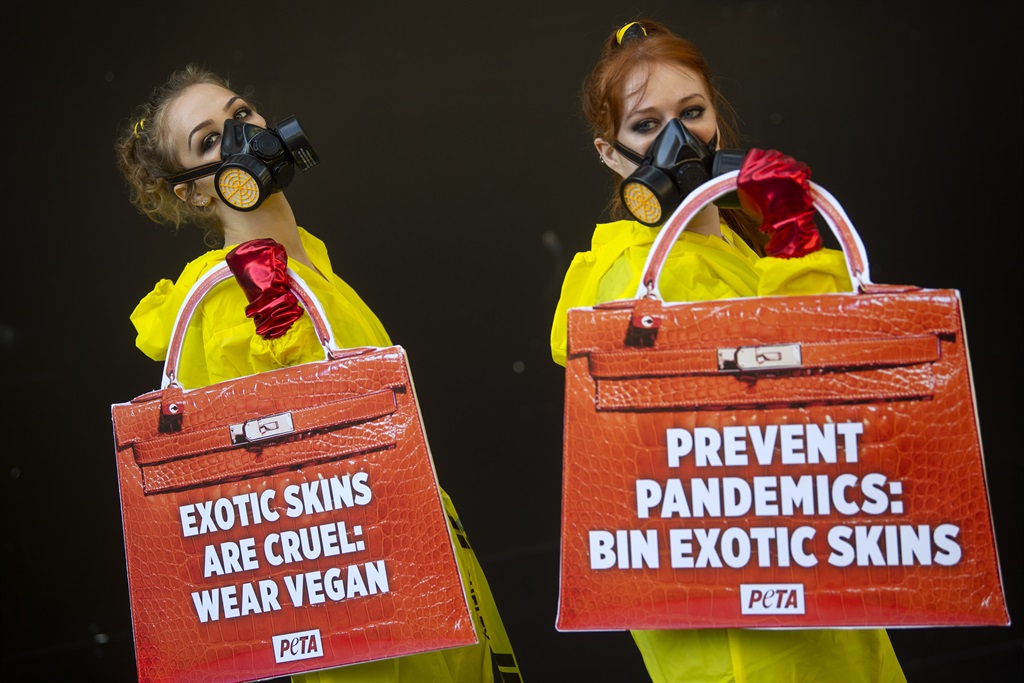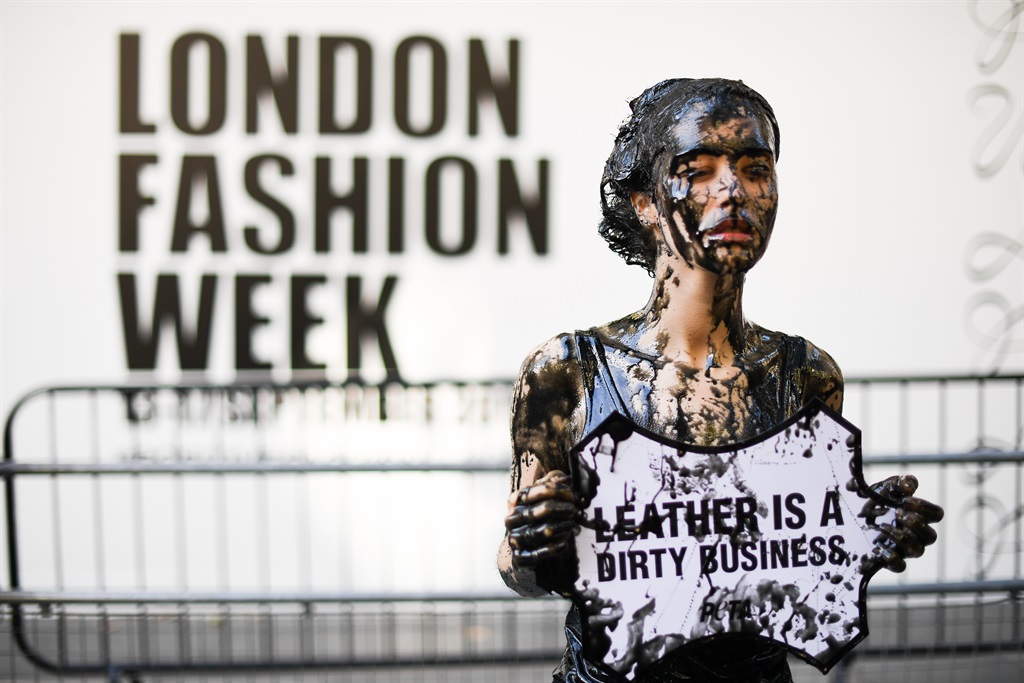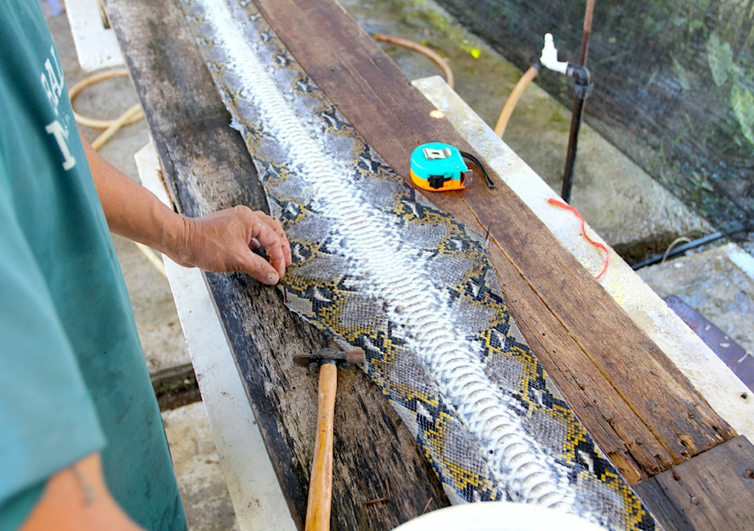
- The fashion industry tries to do the right thing when it comes to sustainability – after all, its profits increasingly depend on it. But it needs help. This is where science comes in.
- It is the job of scientists to generate hard evidence to help come up with solutions that work for people, businesses and the planet. Yet even issues that attract strong scientific consensus can sometimes arouse deep scepticism.
- So, we have a choice. Do we want to maintain a sustainable industry, and help people and biodiversity co-exist, or do we want to ban exotic animal products altogether?
In the fashion industry, nowhere is that conflict more apparent than in the use of animal products. Animal rights activists and the fashion industry have long clashed over the use of natural materials such as animal furs, feathers and leathers versus synthetic alternatives.
The industry, with scientific backing, argues that using wildlife products is sometimes a better option than synthetics. Animal rights activists nonetheless protest such uses, and have every right to do so because free speech and public debate are critical forums for advancing knowledge and society as a whole.
READ MORE: California bans the sale of fur - here are all the fashion houses that have done the same
Hazmat-clad protesters from PETA animal rights group demonstrate outside Somerset House, the venue for London Fashion Week. (Photo by Victoria Jones/PA Images via Getty Images)
Yet a disturbing trend has emerged: apparently scientific assessments of the wildlife trade that purport to reveal major problems, but seem at least partly to reflect a philosophical opposition to animal use by the authors. This can negatively impact both ecosystems and the people who depend on this trade.
In a paper in the journal Conservation Biology, we cite a number of examples of what we argue are flawed studies that can undermine science and sustainability. We also examine a case study of wildlife use by the fashion industry: a piece of work published in early 2020 by the scientific journal EcoHealth.
The authors of that paper analysed statistics about fashion items made with wildlife products seized by US Customs between 2003 and 2013.
PETA demonstrators stage a protest outside the main site of the London Fashion Week, covering themselves in black glue, to protest against the use of the leather and fur in the fashion industry, London, on September 13, 2019. (Photo by Alberto Pezzali/NurPhoto via Getty Images)
Many products were shipped by well-known brands and most items were derived from reptiles. The authors concluded that breaches of regulation were common and increasing – and hence that illegal trade is rife and (by implication) harmful to wild populations.
As a result, the authors of that paper called for the trade to be regulated far more rigorously and, ideally, stopped entirely.
The authors’ philosophical opposition to commercial use of wildlife products is clear, for example, in phrases like, “If species are beautiful enough to carry as a handbag, they should be beautiful enough to let live sustainably and fulfil their ecological roles in the wild”.
We don’t doubt the authors’ sincere passion for animals, but believe that sadly that perspective has led them to conclusions that are counter to the information that is available.
In Indonesia, the sustainable and regulated harvest of wild pythons for food and leather provides a livelihood for thousands of families. Daniel Natusch
Our re-analysis of their evidence shows that rates of seizure of wildlife goods by US Customs were exceptionally low, at 0.4% of shipments (or 253 out of 56 930), and decreasing rather than increasing. For comparison, US universities, museums and government agencies importing reptile specimens for scientific and other non-commercial purposes over the same time period had a seizure rate of 2.5 percent.
Nonetheless, does this mean that the fashion industry and reputable US institutions are involved in illegal wildlife trade? Of course not. These seizures mostly reflect paperwork errors rather than evidence of poaching or criminal activity.
For example, if a store worker in the exporting country accidentally misplaces the permits meant to accompany the shipment, that shipment will be seized on arrival. Or if one of the leathers used in a product (a lizard skin handle for a snake skin handbag, say) has not been written into the documentation, then the product will be seized even if valid permits cover other leathers used in that same product.
In some instances, a customs official may merely confiscate items and give the importer the opportunity to clarify the error. However, paperwork errors are indeed a violation, no matter how innocent or accidental – and whether the importer is a fashion brand or a reputable US institution – and most often the items are seized.
Nevertheless, the flaws in the EcoHealth article have already done their damage.
Reputable media outlets like National Geographic, The Business of Fashion and Vogue reported the authors’ conclusions, further confusing fashion’s decision-makers and misguiding consumers, many of whom are desperate to make the right choice.
(Photo by Edward Berthelot/Getty Images)
Since then, Tommy Hilfiger and Calvin Klein have officially dropped exotic leathers from their product lines, joining other major brands like Hugo Boss, Victoria Beckham and Vivienne Westwood.
READ MORE: Chanel has banned the use of exotic skins on all their products - why this matters
A sustainable trade
You might be wondering whether this matters. Even if scientific papers like the one in EcoHealth are misleading as we argue, surely killing wild animals to make luxury handbags is still unacceptable and unsustainable?
No, the exact opposite is true.
Detailed scientific studies over many years have shown that the trade in exotic leathers – like those of pythons, lizards and alligators – can be entirely sustainable. Not only that, the industry also directly finances robust conservation programmes, with benefits for indigenous communities and rural livelihoods. It is the essence of a nature-based solution to a nexus of growing global challenges.
Closing down the trade in wildlife-based luxury goods can create significant economic and social problems for people in biodiverse countries like Indonesia and Malaysia. Ironically, it may even increase poaching of genuinely threatened species.
So, we have a choice. Do we want to maintain a sustainable industry, and help people and biodiversity co-exist, or do we want to ban exotic animal products altogether?
READ MORE: Why it matters that cactus leather doesn't require killing the plant, plus other leather variants
We can’t have it both ways.
Well-intentioned people will form widely opposed views on this matter, and that’s okay, but it is critical that the information to support those views is factual and reliable.
Climate change deniers and anti-vaccination conspiracy theories have taught us that misinformation and ideology can be deadly. Flawed science on the wildlife trade poses the same risk for biodiverse ecosystems and the communities who depend on them.
This article is republished from The Conversation under a Creative Commons license. Read the original article.
Follow us on social media: Facebook, Twitter, Instagram
Sign up to W24's newsletters so you don't miss out on any of our stories and giveaways.




 Publications
Publications
 Partners
Partners















